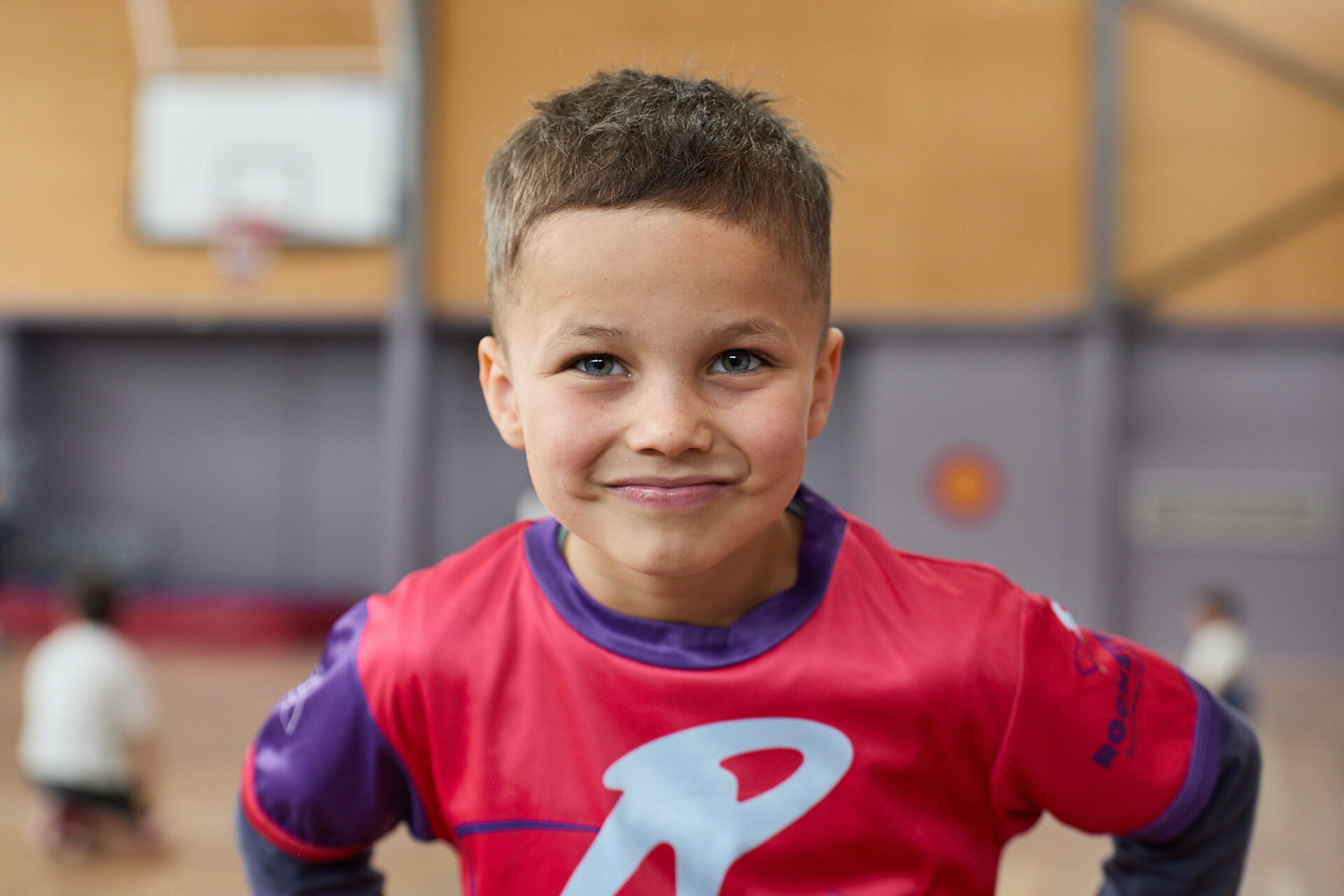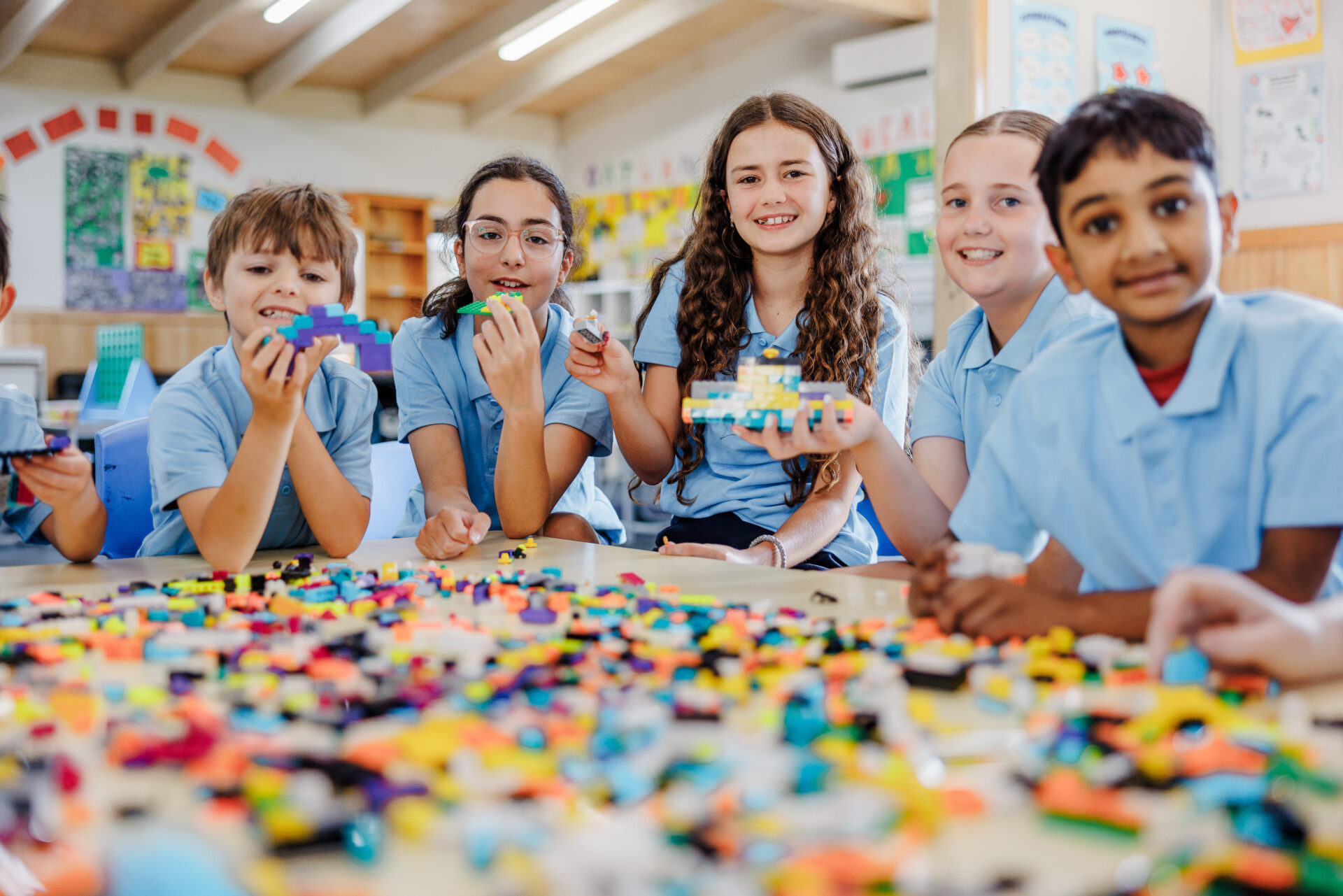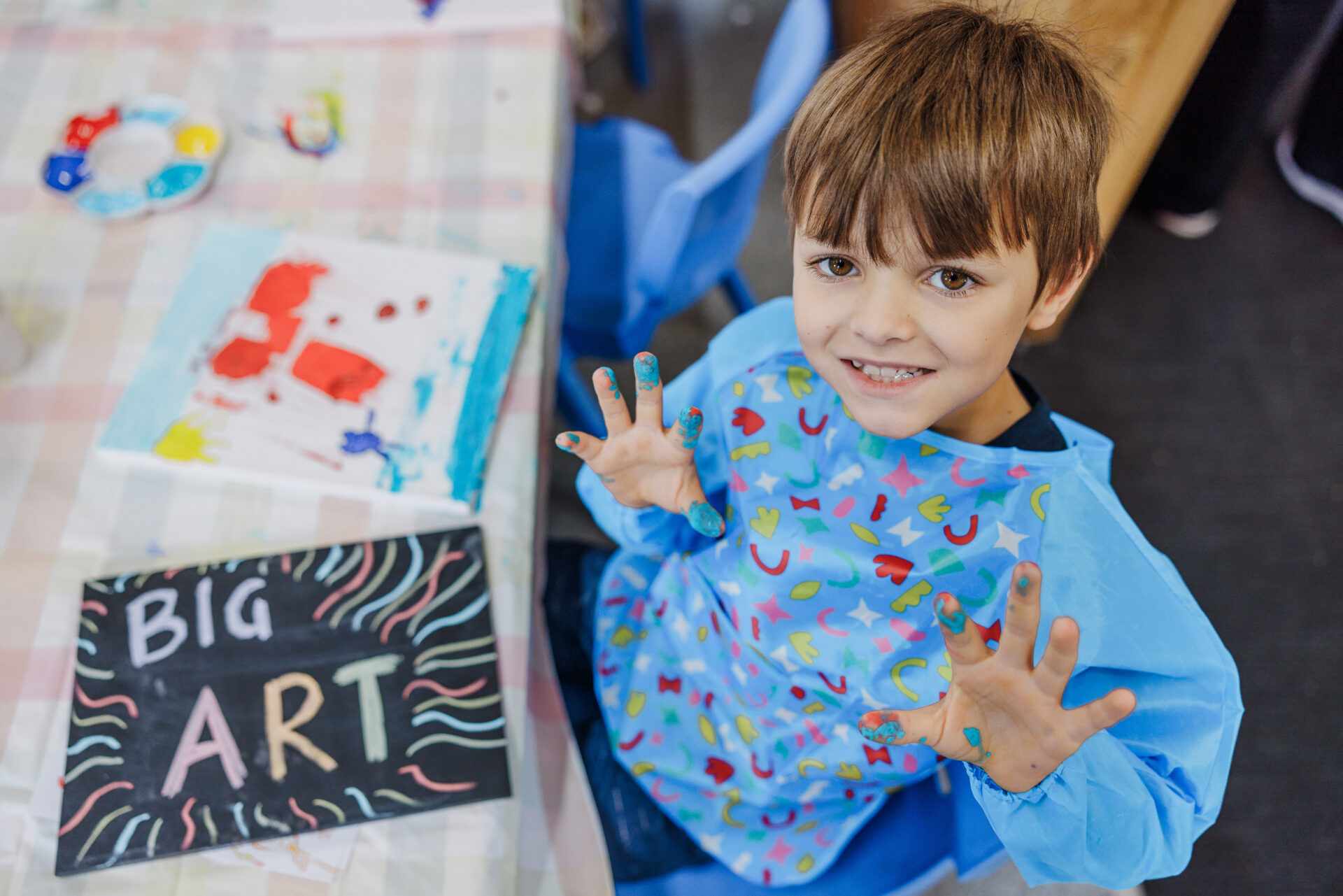Martine Oglethorpe from The Modern Parent is an expert in online safety and has written her top tips for parents when navigating the challenges of raising children in a technologically advanced world. As we’re back in the midst of lockdown, Martine’s advice is practical and ideal for strengthening the relationship between technology and child, plus parent and child. A must-read for any parent, especially under lockdown conditions!
As our children become increasingly immersed in the digital world, they will be faced both with challenges that threaten their safety and wellbeing, as well as opportunities that offer enormous benefits to their wellbeing, connection and learning. So how do we, as parents, ensure that our children are getting more of the great experiences online, whilst avoiding the negative and harmful experiences? A good place to start is to look at our mindset around the digital world and the role it plays in our children’s lives, and then use that to set up safe, secure boundaries, based on understanding and open communication.
Don’t make technology ‘the bad guy’
Sometimes it may feel like we are in a cycle of nagging our children about their use of screens and devices, repeatedly met by moans, groans or even ‘techno tantrums’ as we bargain for more balance between the offline and online worlds. I think however, we need to be careful how we frame our attitude to technology. When we view technology as “the bad guy” and something we are trying to take away at any chance, we risk setting up “us versus them” battles with our children that don’t often leave either of us in a winning position. We want our children to know they can come to us if anything goes wrong online, and that we will be there to help them, guide them and support them through those challenges. When we adopt an attitude of trying to incorporate the technology into our lives in healthy ways rather than trying to shut it down, block it and ban it, then we have a greater chance of them seeing us as relevant to their world. They feel confident to engage us when needed, without fear of having the technology taken away at the first sign of a mistake.
Expect mistakes
On that note, we must expect that our children will make mistakes. Whenever we learn anything in life there is a time of trial and error, risk taking or doing something for the first time which sometimes can lead to negative outcomes. Hopefully however, if we have been open and honest and made ourselves a viable option to help them when they make mistakes, then they will come to us before something gets out of control. They will be able to manage the smaller mistakes that allow them to learn and grow and thus avoid the more catastrophic life changing mistakes that usually happen when a child feels they have no options or no support.
Play with your children
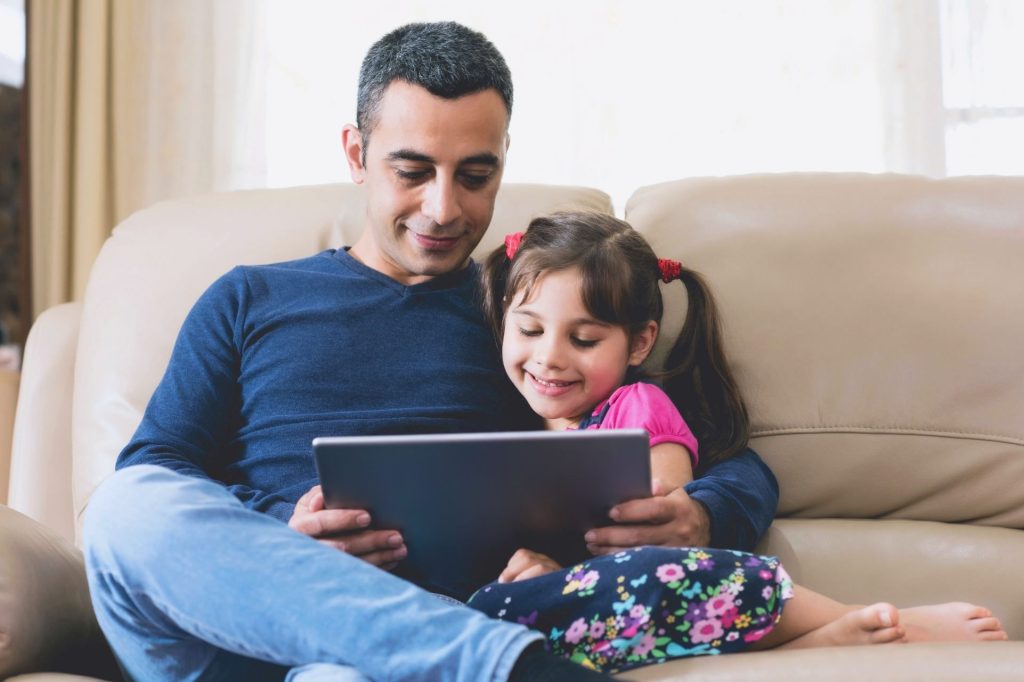
One of the best ways to have the right conversations with your children and indeed to find out the challenges they may face, is to play with your children. No, you don’t have to do this all the time, but having the odd game with them can help you learn about their world but also create boundaries in a world you now have some understanding about. Better still, getting them to teach you how to play or do something online can also be beneficial and lead to greater perspective for you and a greater ability to have the most relevant conversations. It can also be a great way to bond with your child, and they will usually get a kick out of being able to teach you something.
Listen more, lecture less
It is easy to get into the habit of making rules and leaving it there. Often though this can lead to fighting, disrespect for those rules or the dreaded techno tantrum. If your child is not getting the balance right or wanting things you don’t believe they are ready for, it is better to have this as a two-way conversation. Listen to their reasons, but give your reasons too, so that together you can come up with something that still allows for respect for your decisions, but also engages them some autonomy in how they start to look at their relationships with screens and how they spend their time. Give them the opportunity to test out that boundary, see how it works for you both and adjust as needed. And always have these conversations away from the screens…not whilst they are in the middle of a battle or just about to be the last man standing in Fortnite!
Pay attention to the individual
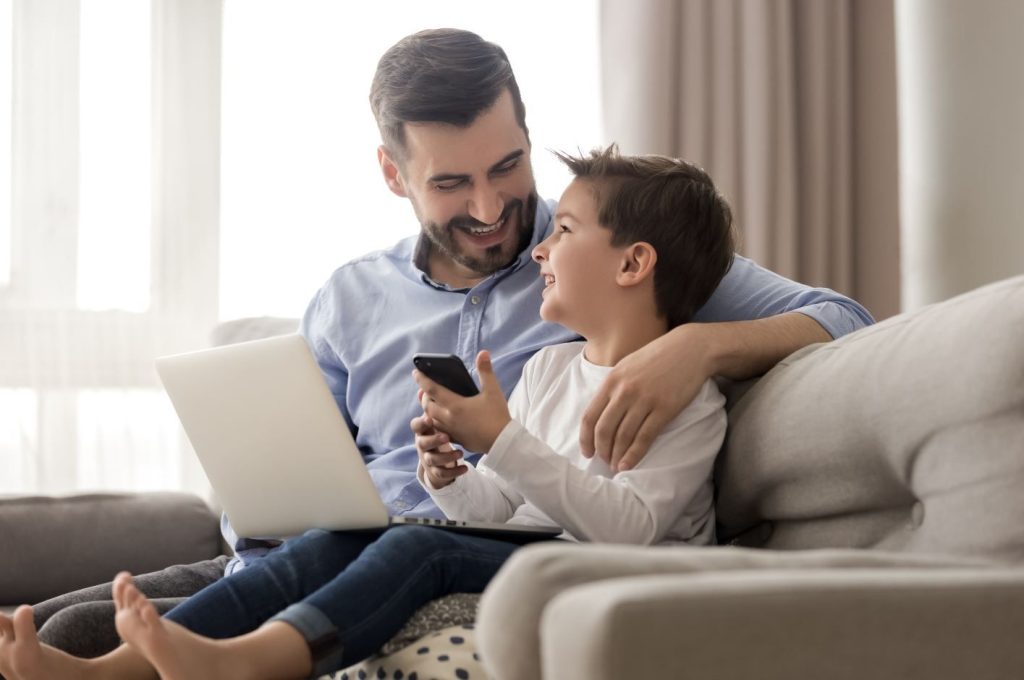
When making boundaries around screen time and what our children can have access to, it is important we look at the individual needs as well as the social, emotional and cognitive development of our children. What works for one child, doesn’t necessarily work for another. Some children can happily play something for a while and then easily transition to other activities with no drama. For others, even short times on a screen can have negative impacts on them and leave them struggling to put it away. Some can be affected by the content and concepts they are exploring, whilst others see no ill effects. Some children find screens a great way to relax, unwind and decompress life’s stressors, whilst the opposite can be true for others. So, look at your individual child and how they are coping, and make decisions based on their needs.
What are they doing and what are the effects? Not just, how much are they doing?
When we look at how much screen time children should be allowed it is becoming an increasingly complex question. Especially when so much of their learning, connection, information and entertainment comes from a screen. The experiences they can have and the effects of that screen time however can be vastly different. So, we must look at the nature of what they are doing on the screens. Is it helpful and healthy or is it detrimental to their wellbeing? Are they consuming content that informs, ignites passions, motivates and inspires, or is it inappropriate, dangerous, irrelevant or fake? Are they enjoying the banter with friends and the support of their online connections, or are they feeling excluded, constantly comparing themselves to others or being harassed or bullied? Are they creating and engaging and interacting in positive ways, or are they merely consuming copious amounts of content? The ways in which they use technology, the experiences they have, and the effects of those experiences, will tell us a lot more about how they are managing their screen time, rather than relying on time alone.
Technology free times
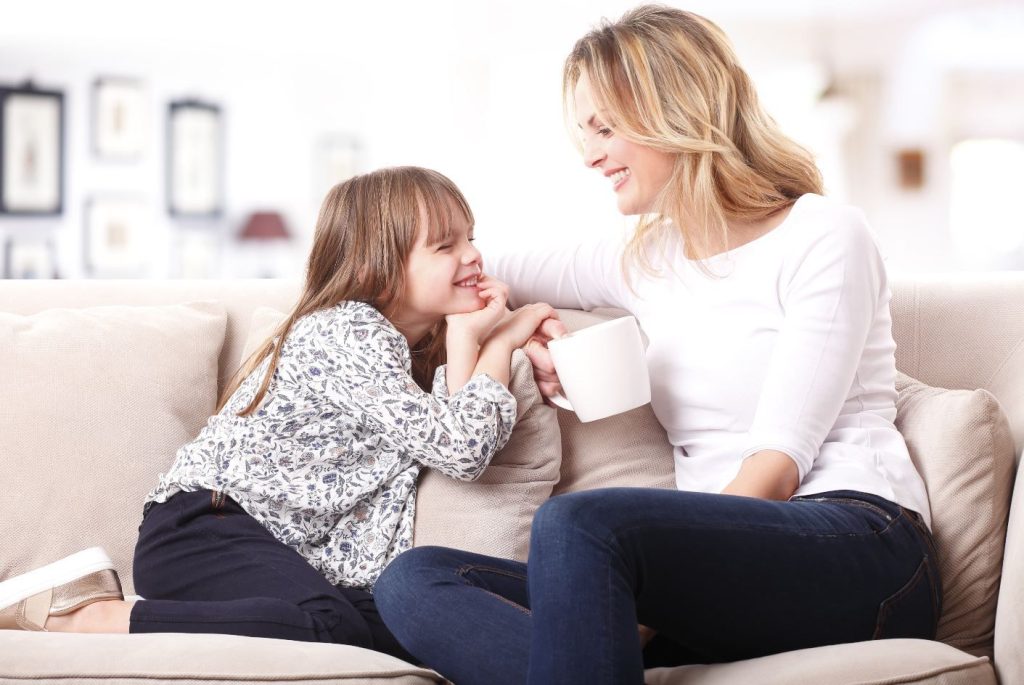
We all have so many needs that must be met each day. We need time to be active, time to have fresh air, to engage with friends, to play with our pets, to do some chores, to get enough sleep, to have downtime to relax and daydream, to build on other skills and learn in a variety of ways. When looking at our child’s use of screens we must also ask ourselves if all of these other areas of their life are being met. If there is a trade off in that using screens means these other important aspects are losing out, then we need to make some changes to ensure that on the whole, we are able to get that balance. Providing plenty of opportunities without screens, such as at the dinner table, before bed, when you are on outings or out on a walk, can help ensure they get used to carving out that balance in their day.
There is so much that technology can offer our children, but the effects and impacts on their life can play out in vastly different ways. With some support, understanding, perspective and boundaries, parents can play the greatest role in how their children can manage the challenges, avoid the negative consequences and instead take control and reap the many benefits of a digital world, whether in lockdown conditions or otherwise.
Martine Oglethorpe is a Digital Wellbeing and Online Safety Educator, Speaker and Author. She has a background in teaching and a Master of Counselling and is a mother to 5 boys. She presents regularly to schools, parents, students and workplaces on healthy ways to navigate the digital world. She has recently released her new book The Modern Parent: Raising a Great Kid in the Digital World, available from Amazon and on her website http://www.themodernparent.net.



